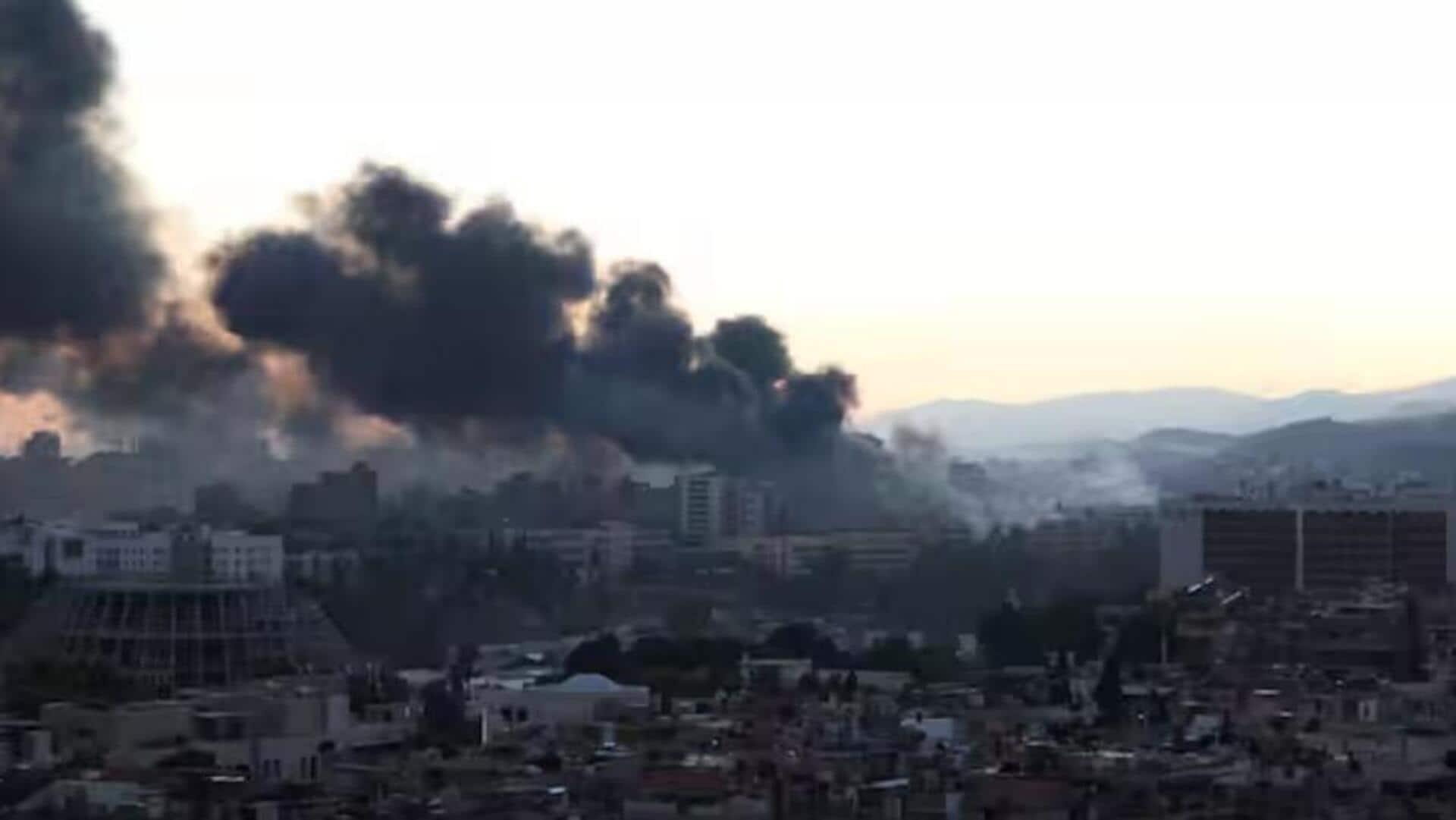
US conducts airstrikes on ISIS camps in Syria
What's the story
The United States has launched a series of airstrikes targeting Islamic State (ISIS) camps in central Syria, following the ousting of President Bashar al-Assad by rebel factions.
The operation involved "dozens of precision airstrikes" on over 75 targets using aircraft such as B-52s, F-15s, and A-10s.
The US Central Command (CENTCOM) stated that these strikes aimed to "disrupt, degrade and defeat ISIS" and prevent the group from exploiting the current instability in Syria.
Ongoing vigilance
US vows to prevent ISIS resurgence amid Syrian instability
General Michael Erik Kurilla, stressed that the US would not permit ISIS to regroup and cautioned organizations against backing the terrorist group.
"There should be no doubt - we will not allow ISIS to reconstitute and take advantage of the current situation in Syria," Kurilla said.
He added, "All organizations in Syria should know that we will hold them accountable if they partner with or support ISIS in any way."
Presidential stance
Biden labels Assad's fall as 'fundamental act of justice'
US President Joe Biden called Assad's fall a "fundamental act of justice," recognizing the risks and uncertainties of this transitional phase.
He assured the country will continue conducting anti-ISIS operations during this period.
Secretary of State Antony Blinken voiced support for a peaceful transition to an accountable Syrian government, saying Syrians have the right to demand state institution preservation, service resumption, and community protection during this transition.
Regime collapse
Blinken attributes Assad's fall to refusal of political process
Notably, Bliken said Assad's refusal to engage in a credible political process since 2011 led to his regime's collapse.
"The Assad regime's refusal since 2011 to engage in a credible political process and its reliance on the brutal support of Russia and Iran led inevitably to its own collapse," said Blinken.
He said Syrians have every right to demand state institution preservation, service resumption, and community protection during this transition.